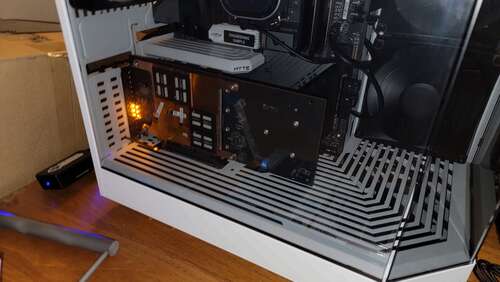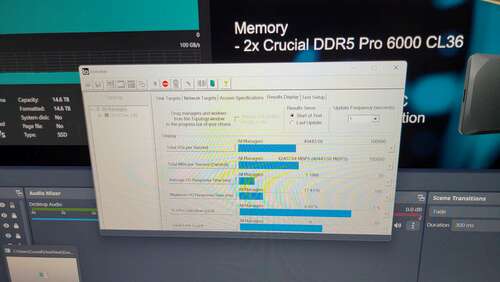Why it matters: Micron at CES 2024 showcased what’s possible when you combine several of its Crucial T700 2 TB PCIe Gen5 SSDs together with cutting-edge cooling technology. Micron loaded a modified Gigabyte Aorus Gen5 AIC adapter with four of its Crucial T700 2 TB PCIe Gen5 NVMe M.2 SSDs for some speedy RAID0 goodness. That sounds like a recipe for thermal disaster, but Micron had a plan to cope with the copious amounts of heat the contraption would create.
As you know, a single Gen5 PCIe SSD can get awfully toasty on its own. It is why we recommend no less than a passive heatsink (and why some are shipping drives with self-contained liquid cooling solutions), but there is another option that seems equally adept and less risky than water.
The memory and storage specialist teamed up with Frore Systems, makers of the innovative AirJet Mini solid-state cooler that uses vibrating membranes to push air across a heat spreader. A single unit is capable of removing 5.25 watts of heat at 21 dBA, and generates 1,750 pascals of back pressure while consuming just one watt of power.

Four AirJet Mini coolers were attached to a copper heat spreader mounted on the SSDs. During stress testing using Iometer, two of the drives reached 76 degrees Celsius and the other two topped out at 78 degrees Celsius – warm, but manageable.
The RAID array was able to reach 45,000 MB/s peak sequential read speeds and 42,000 MB/s peak sequential writes, and 40,000 MB/s sustained sequential read and write speeds – all without thermal throttling. The Gigabyte Aorus AIC card supports up to 60 GB/s, so we know the cards were not hitting any bandwidth bottlenecks.
Related reading: Frore unveils thinner, lighter, and smarter version of its AirJet Mini fanless cooler
Micron has not committed to releasing any SSD with AirJet Mini cooling so for now, this is just a neat demonstration of what is possible with RAID and adequate cooling.
Image credit: Tom’s Hardware


